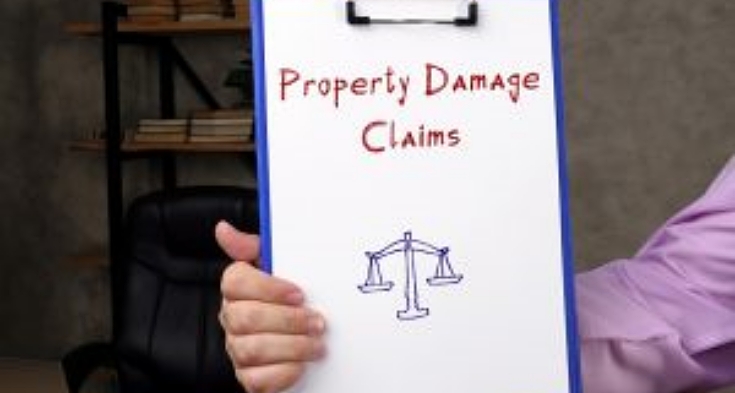
Receiving an Administrative Complaintfrom the Florida Department of Health (DOH) is one of the most frightening moments in a Registered Nurse’s career. Your professional license is your livelihood, and any allegation of misconduct, negligence, or impairment can feel like an immediate, existential threat to your career. Read this blog to learn more about defending your registered nurse license in Florida and the steps you can take to protect your nursing career.
You are not without options, and you don’t have to face this administrative process alone. This guide will provide clear, authoritative insights into the most common allegations and the strategic legal steps necessary to protect your license and professional standing.
Need immediate guidance? Contact Elevate Legal Services, PLLC today at 561-770-3335 for a confidential consultation, or reach out to us to speak with an attorney about your case.
By the end of this article, you will walk away with a solution-oriented understanding of the Florida Statutes that govern the nursing discipline, a practical guide to the DOH administrative process, and the knowledge required to make an informed decision about your legal defense.
The Critical Moment: Responding to a DOH Administrative Complaint
 As a Registered Nurse in Florida, you’re held to the highest standards of care. When those standards are challenged, the process is swift and complex. A DOH Administrative Complaint is a formal charging document. It outlines the specific statutes you are alleged to have violated and initiates the disciplinary process before the Florida Board of Nursing.
As a Registered Nurse in Florida, you’re held to the highest standards of care. When those standards are challenged, the process is swift and complex. A DOH Administrative Complaint is a formal charging document. It outlines the specific statutes you are alleged to have violated and initiates the disciplinary process before the Florida Board of Nursing.
It is absolutely crucial to understand that time is your greatest enemy in this phase of defending your registered nurse license in Florida. The deadline to respond is firm and non-negotiable.
Many nurses make the mistake of trying to communicate directly with investigators or submitting a written explanation without first consulting an attorney. This can compromise your defense before it even begins.
Here’s the golden rule:Once you receive a complaint, your first and only step should be to contact an experienced administrative law attorney.
The Three Most Common Threats to a Florida Nursing License
The DOH primarily uses three subsections of Florida Statute §464.018(1)to initiate disciplinary action against a Registered Nurse. Understanding the distinctions between these statutes is vital for building an effective defense strategy.
F.S. §464.018(1)(b): Negligence, Incompetence, and Misconduct
This statute is used when the Board alleges a nurse is unable to practice with reasonable skill and safety due to broad issues of competence, negligence, or misconduct.
Here’s what that means legally:
- Negligence in Patient Care:This is often cited for serious medication errors, failure to monitor a patient appropriately, or an inadequate response to a change in a patient’s condition.
- Clinical Incompetence:Repeated mistakes in fundamental nursing tasks, improper use of medical equipment, or an inability to follow established medical protocols.
- Professional Misconduct:Violating the boundaries of the nurse-patient relationship, falsifying medical records, or violating patient confidentiality (HIPAA).
When facing a (1)(b) allegation, the defense must focus on the clinical facts. We work to establish that the actions did not meet the legal threshold for negligence or incompetence. We also look for procedural or systemic issues that may have contributed to the incident.
Penalties can range from a public reprimand to license suspension or even revocation, depending on the severity of the alleged harm and professional history.
F.S. §464.018(1)(j): Impairment, Substance Abuse, and Evaluation Refusal
This subsection is the primary tool the DOH uses when a nurse’s ability to practice is compromised by addiction, substance abuse, or a physical or mental health condition.
Common Allegations Under (1)(j):
- Practicing While Impaired:Arriving to work intoxicated or displaying erratic behavior indicative of substance use.
- Diverting Narcotics:Stealing or misappropriating controlled substances from patients or hospital stock for personal use.
- Refusal to Comply:Crucially, refusing to undergo a medical or psychological evaluation ordered by the DOH is itself a violation that can lead to immediate license suspension.
For these cases, a solution-oriented approach often involves strategic engagement with the Intervention Project for Nurses (IPN). IPN participation can protect your license from public discipline, but it must be handled carefully.
We provide reassuring guidance on how to navigate the IPN while protecting your long-term career interests and professional reputation.
F.S. §464.018(1)(o) & Rule 64B9-11.002: Rule Violations and Record-Keeping
This is the Board’s “catch-all” statute. It grants disciplinary power for violating anyprovision of Chapters 464 or 456, or any rule adopted under them.
The associated Rule 64B9-11.002specifically governs the proper retention, secure storage, and transfer of patient medical records. This is highly relevant for nurses who own practices or work independently.
These are the common record-keeping failures:
- Failing to retain patient records for the legally required duration (generally five years or more).
- Closing a practice without providing the legally required written notification to patients on how to access their files.
- Inadequate, non-secure, or non-HIPAA-compliant storage of confidential records.
Though these may appear to be “technical” violations, the DOH views them as serious breaches of patient safety and confidentiality. We aggressively challenge the factual basis of these claims, demonstrating compliance efforts and mitigating the severity of the alleged rule infraction.Read More About DOH & DBPR Complaints.
Your Strategic Defending Your Registered Nurse License: Navigating the DOH Administrative Process
The DOH process can feel like a labyrinth, but with professional representation, it becomes a series of manageable, strategic steps.
Step 1: Secure Counsel and Preserve Evidence
The moment the complaint arrives, the clock starts ticking.
Your attorney will immediately review the specific allegations, identify the cited statutes, and establish a clear timeline for your defense.
Do not destroy, alter, or discard any relevant documentation, including patient charts, internal reports, emails, or shift notes. We take control of all communication with the DOH investigator, ensuring your defense strategy remains coherent and protected.
Step 2: Analyze the Critical Election of Rights Form
Upon receiving the complaint, you will also receive an Election of Rights Form. This is perhaps the most important procedural document, as it requires you to choose your legal path:
- Informal Hearing:You do not dispute the facts of the complaint, but you argue for a lesser penalty before the Board of Nursing.
- Formal Hearing:You dispute the material facts and request a full evidentiary hearing before an Administrative Law Judge (ALJ).
- Settlement Negotiation:You seek to resolve the matter through a mutually agreed-upon Consent Agreement.
This decision must be made in consultation with your legal team. Choosing the wrong path can automatically admit fault or lead to significantly unfavorable penalties.
Step 3: Execute a Solution-Oriented Defense
Once the election is made, your attorney will execute a solution-oriented legal strategy.
If the facts are weak, we aggressively challenge the evidence and procedural errors. If the facts are undeniable, we focus on powerful mitigation and remediation. We present proof of your compliance training or successful participation in monitoring programs.
Our goal is always license retention—achieving a dismissal, a non-disciplinary resolution, or a settlement that imposes the least restrictive sanctions possible, allowing you to return to practice swiftly.
Why Experienced Representation is Non-Negotiable
 As a client-centered law firm, Elevate Legal Services, PLLC, operates with credibility, reliability, and compassion. Defending a license requires specific expertise that a general practitioner cannot provide.
As a client-centered law firm, Elevate Legal Services, PLLC, operates with credibility, reliability, and compassion. Defending a license requires specific expertise that a general practitioner cannot provide.
We are an authoritative defense team for Florida healthcare professionals. We ensure you benefit from:
- Deep Administrative Law Experience:We have successfully represented hundreds of RNs before the Florida Board of Nursing and the Division of Administrative Hearings (DOAH).
- Custom Legal Strategies:Every case is unique. We tailor our defense to your specific circumstances, professional background, and career goals.
- Reassurance and Clear Communication:We strip away the unnecessary legal jargon, keeping you informed and empowered at every stage of the process.
Your license is the single most valuable asset in your professional life. Protect it with a team dedicated to your future.
Frequently Asked Questions (FAQ)
1. What happens immediately after I receive an Administrative Complaint?
The complaint officially begins the disciplinary process. You must respond, typically within 21 days, via the Election of Rights form. Immediately consulting an attorney is the priority to prevent crucial errors.
2. Is a DOH Complaint public information?
Yes. Once an Administrative Complaint is filed, it generally becomes a matter of public record, accessible via the DOH license verification system. Quick resolution is key to minimizing long-term reputational damage.
3. What types of evidence are most effective in defending against F.S. 464.018(1)(b) claims?
The most effective evidence includes detailed patient charts, internal quality assurance reports, proof of relevant continuing education (CE), witness statements from supervisors, and expert testimony to dispute the claim of clinical incompetence or negligence.
4. If I admit to the facts via an Informal Hearing, does my license get suspended?
Not necessarily. Choosing an Informal Hearing means you accept the facts as stated but are arguing the severity of the penalty. The Board will then decide the final discipline, which may include probation, fines, or a reprimand instead of suspension or revocation.
5. What are the typical costs associated with fighting a DOH Administrative Complaint?
Legal fees vary widely based on the complexity of the case (e.g., whether it goes to a Formal Hearing) and the severity of the allegations (e.g., impairment vs. record-keeping). However, the cost of defense is always significantly lower than the cost of losing your career.
6. Can a prior criminal charge unrelated to patient care be grounds for license discipline?
Yes. Florida law requires RNs to report felony convictions and certain misdemeanors related to the practice of nursing. Failure to report these within the timeframe necessary can be an independent violation of the Nurse Practice Act, leading to discipline.
Defending Your Registered Nurse License In Florida
Receiving a DOH Administrative Complaint is serious, but it doesn’t have to end your career. With the right legal team, Defending Your Registered Nurse License In Florida becomes possible—allowing you to protect your license, restore your reputation, and move forward with confidence.
Do not gamble your livelihood on inexperience. Let the attorneys at Elevate Legal Services, PLLC, provide the authoritative defense you need.
Protect your license, your career, and your peace of mind today.
Call us immediately at 561-770-3335for a confidential consultation or fill out our online contact form.





